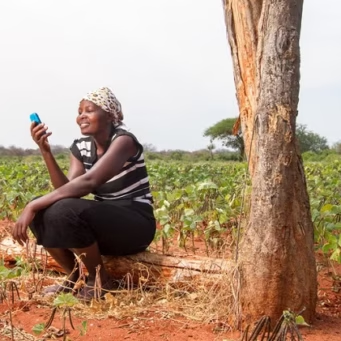Earlier in August 2025, the African Digital Economy and Inclusion Conference convened policymakers, innovators, academics, and business leaders to chart the role of artificial intelligence in shaping Africa’s future. The central mission was clear: harness AI to drive economic growth while ensuring no one is left behind. Yet discussions also laid bare a critical reality, Africa’s tech infrastructure is not fully prepared to sustain the continent’s AI ambitions.
Africa’s digital economy is currently valued at €155 billion and is projected to soar to nearly €700 billion by 2050. The promise is vast. AI could transform sectors from healthcare to agriculture, creating efficiencies and leapfrogging traditional barriers. But without reliable electricity, widespread internet coverage, and sustainable funding, these ambitions risk remaining aspirational. In rural areas especially, millions of Africans still face daily struggles with power cuts, poor connectivity, and underfunded public systems. For them, the future of AI feels distant.
Some examples already showcase what is possible. In Rwanda, DoctorIA is helping frontline health workers with real-time medical diagnoses. In Senegal, AWA, an AI-powered chatbot, provides services in Wolof via WhatsApp, showing how technology can adapt to cultural and linguistic realities. In Côte d’Ivoire, Sah Analytics empowers citizens to track inflation by sharing price data through photos. These initiatives demonstrate that African innovators are building AI tools rooted in the continent’s realities. But scaling them will require investment in infrastructure and deliberate policy support.
The African Union’s AI Strategy 2030 and the creation of the African AI Council signal intent to harmonise regulation, expand digital identity systems, and foster responsible AI use. However, as Professor Seydina Ndiaye warned at the conference, unless governments and businesses back these frameworks with significant capital and operational support, they risk being reduced to declarations rather than transformative systems.
The path forward is not simply about building AI applications; it is about laying the foundations for AI to thrive. That means stabilising power grids, expanding fibre-optic networks, strengthening cloud infrastructure, and funding local data centres. It also means ensuring African datasets shape the models being built, so that AI reflects the realities of African societies rather than reinforcing imported biases.
The African Digital Economy and Inclusion Conference made one thing clear: innovation is alive, and demand is undeniable. Africa’s youthful population is tech-hungry, its entrepreneurs are resourceful, and its challenges are exactly where AI can have the greatest impact. But to convert innovation into inclusive growth, the continent must first close its infrastructure and funding gaps. Only then can African-built AI solutions in healthcare, finance, education, and agriculture scale to meet the needs of over a billion people and position Africa as a genuine leader in the global digital economy.








